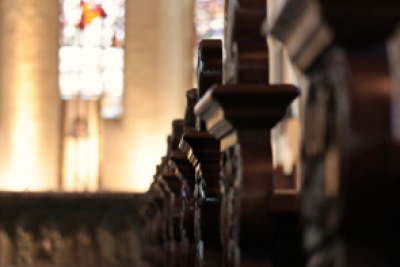Why We're all Responsible for Fixing Scandals in the Church

The Catholic sex abuse scandal is revolting. That Theodore McCarrick sexually abused seminarians is horrific enough. But reports that the Vatican knew about it and did nothing shocks anyone with any sense of propriety and justice.
Plus, now there's a grand jury report revealing that more than 300 priests in Pennsylvania have been credibly accused of abusing more than 1,000 victims. And law enforcement officials in 10 states have launched similar investigations, suggesting the abuse is rampant.
Decent Catholics are outraged and rightfully so. They're demanding resignations and change among church hierarchy.
And Protestants, who at one time might have used the scandal as an opportunity to throw stones, are realizing that we live in a glass house too. From scandals involving Bill Hybels to Mark Darling to Sovereign Grace Ministries and Bob Jones University, it's clear that we have our own problems. Unfortunately, the Catholic Church doesn't have a monopoly on sex abuse or the ability to cover it up.
But what's the solution?
Many proposals aim to reform the system. Certainly, the Catholic Church and its hierarchy need to change. Protestant denominations need to change too. And I'm heartened, for example, that Southern Baptist Convention President J.D. Greear announced that he will form a Sexual Abuse Presidential Study Group.
But as Dr. Jennifer Roback Morse recently wrote to fellow Catholics, relying on church leaders to solve the problem may be futile. "Most proposals for reform require cooperation from the very same people who have already failed us," she said. "These ideas still leave us, the ordinary Catholic in the pew, at the mercies of men we no longer trust."
As Protestants, our leadership is much more decentralized, and I believe there are godly church leaders we can trust. Yet Morse makes an important point. Laypeople need become part of the solution. Sadly, if we're honest, we have to admit we've been part of the problem. She explains:
If the witnesses who are potential whistleblowers knew they would be supported by faithful Catholics, would they be more likely to blow that whistle? Yes, obviously. If the guys doing damage control thought the whistleblowers had alternative sources of support and employment, would that fact reduce their ability to silence the whistleblower? Yes, of course.
All this points to one thing: Being the backstop, the backup plan, providing the alternative support system means that we are changing the incentives under which the Church operates.
Having blown the whistle on wrongdoing at a major Christian institution this year, I resonate with Morse's sentiments. Too often, people shoot the messenger. And it's about time we reverse this pattern.
Rachael Denhollander, one of Larry Nassar's sex abuse victims, understands this pattern well. "When I did come forward as an abuse victim," she told Christianity Today, "this part of my past was wielded like a weapon by some of the elders to further discredit my concern, essentially saying that I was imposing my own perspective or that my judgment was too clouded." Sadly she concludes that the church is "one of the least safe places to acknowledge abuse . . . There are very, very few who have ever found true help in the church."
Read more about Why We're all Responsible for Fixing Scandals in the Church on The Christian Post.